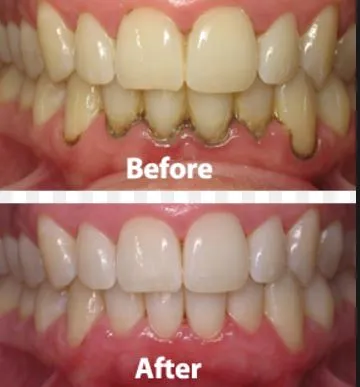Understanding Teeth Whitening with Apple Cider Vinegar
The quest for a brighter, whiter smile has led many to explore various teeth whitening methods, including natural remedies. Apple cider vinegar (ACV), a popular household staple, has gained traction as a potential teeth whitener. However, it’s crucial to approach this method with caution and a thorough understanding of its potential benefits and risks. This comprehensive guide will delve into the details of using apple cider vinegar for teeth whitening, examining how it works, the correct methods, safety precautions, and viable alternatives. Understanding the science behind the process is the first step in making an informed decision about whether this approach is right for your oral health needs. A beautiful smile can boost confidence, but oral health should always come first.
What is Apple Cider Vinegar and How Does It Work?
Apple cider vinegar is made from fermented apple juice. The fermentation process converts the sugars in apples into acetic acid, the main active component in ACV. This acid is what gives ACV its characteristic sour taste and potential health benefits. Proponents of using ACV for teeth whitening suggest that the acidity of the vinegar helps to remove stains from the enamel, the outermost layer of the tooth. The idea is that the acid can break down the substances causing discoloration, revealing a brighter surface. However, the effectiveness and safety of this method are subjects of much debate within the dental community, and therefore needs careful consideration before practice.
The Acidity Factor Why ACV Can Affect Teeth
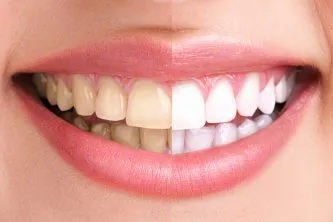
The high acidity of apple cider vinegar is a double-edged sword. While it may aid in stain removal, it also poses a significant risk to the enamel. Enamel is the hardest substance in the human body, but it can be eroded by acids. The acetic acid in ACV can gradually wear away the enamel, making teeth more susceptible to sensitivity, cavities, and discoloration in the long run. The potential for erosion is a critical factor to consider when contemplating using ACV for teeth whitening. Regular and prolonged exposure to acids can be detrimental, even if the initial results appear promising, as long-term damage can far outweigh any temporary benefits. Understanding this risk is paramount to safe practice.
Potential Benefits of Using Apple Cider Vinegar for Teeth Whitening
While the risks associated with using apple cider vinegar for teeth whitening are considerable, some individuals report noticing a slight improvement in the brightness of their teeth. This effect is often attributed to the acid’s ability to remove surface stains. However, it’s important to note that these results are usually temporary and might not be as effective as professional treatments. Furthermore, any perceived whitening is likely due to the removal of stains rather than an actual change in the intrinsic color of the teeth. The benefits, if any, are often short-lived and can be outweighed by the damage to enamel, meaning that a deeper analysis is critical before attempting to use the substance.
How to Use Apple Cider Vinegar for Teeth Whitening
If you still wish to try apple cider vinegar for teeth whitening, it is imperative to do so with utmost care and following the safest methods possible to minimize the risk of enamel erosion. Never use undiluted ACV, and always limit the frequency and duration of exposure. These methods are not recommended by dental professionals, but if you proceed, you must prioritize safety.
ACV Rinse Method
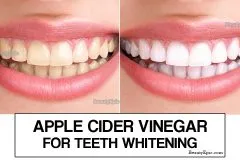
Dilute one to two teaspoons of apple cider vinegar in a full glass of water. Swish the diluted solution around your mouth for no more than 30 seconds. After rinsing, thoroughly rinse your mouth with plain water to remove any remaining acidity. This method is less abrasive than direct application but still carries risks. Ensure you do not exceed the recommended swishing time, and use this method sparingly, perhaps only once or twice a week at most. Thorough rinsing with plain water is crucial to neutralize the acid and protect your teeth.
ACV and Baking Soda Paste Method
Mix a small amount of apple cider vinegar with baking soda to create a paste. Use this paste to gently brush your teeth for no more than one minute. Rinse thoroughly with water. Baking soda can help neutralize some of the acid, but this method is still highly abrasive and can potentially damage enamel. Do not use this method more than once a week, if at all, and observe your teeth for any signs of increased sensitivity or damage. If you experience any discomfort, discontinue the use of this method immediately. The abrasive nature of the baking soda in combination with the acid from the ACV can be particularly damaging.
Important Precautions and Safety Measures
Regardless of which method you choose, it is crucial to adhere to strict safety measures to minimize the potential harm to your teeth. Remember, while a brighter smile may be the goal, oral health should always be the priority. If you have any existing dental issues, such as cavities, gum disease, or sensitive teeth, consult with a dentist before attempting any at-home teeth whitening method. This is an important factor to consider. These precautions can help mitigate some of the risks involved in using apple cider vinegar for teeth whitening, but they cannot eliminate them entirely.
Dilution is Key
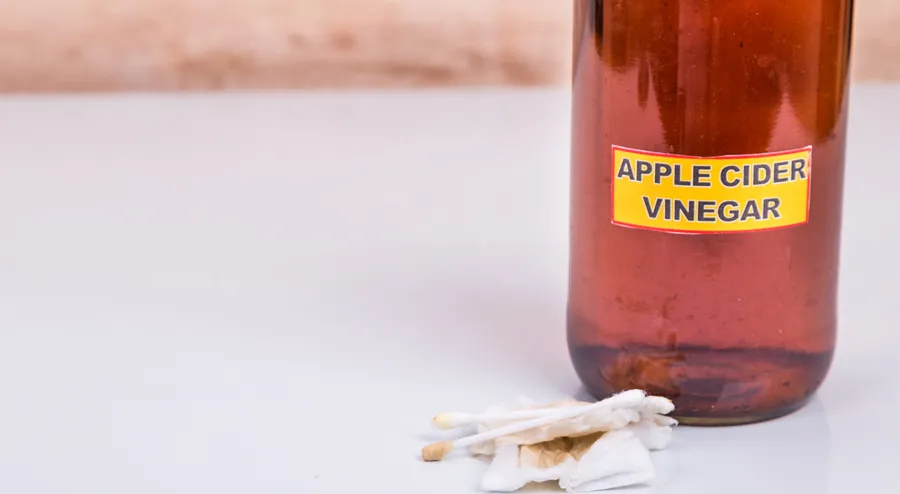
Always dilute apple cider vinegar with water. Never use it in its concentrated form, as this significantly increases the risk of enamel erosion. Using a lower concentration of acetic acid reduces the impact on tooth enamel, but it doesn’t eliminate the risk. It’s a crucial step in mitigating the potential damage. The more diluted the ACV, the less damaging it will be. However, even when diluted, the potential for harm still exists, therefore using the diluted version is not a guarantee of safety.
Frequency of Use
Limit the frequency of use to a minimum. Do not use apple cider vinegar for teeth whitening more than once or twice a week. Frequent exposure to acid increases the risk of erosion. Allowing your teeth to recover and remineralize between uses is critical, and limiting the use of ACV gives the teeth some time to heal. If you notice any changes in tooth sensitivity or the appearance of your teeth, discontinue use immediately.
When to Avoid Apple Cider Vinegar for Teeth Whitening
Avoid using apple cider vinegar for teeth whitening if you have any pre-existing dental issues, such as tooth decay, gum disease, or sensitive teeth. Also, if you are pregnant or breastfeeding, it’s best to avoid this method until you have consulted with your dentist or healthcare provider. People with a history of eating disorders, which can lead to frequent exposure to stomach acid, should also exercise extreme caution. In any case, a dental professional should be consulted before starting treatment. The potential for harm is too great to take risks.
The Risks and Side Effects of ACV
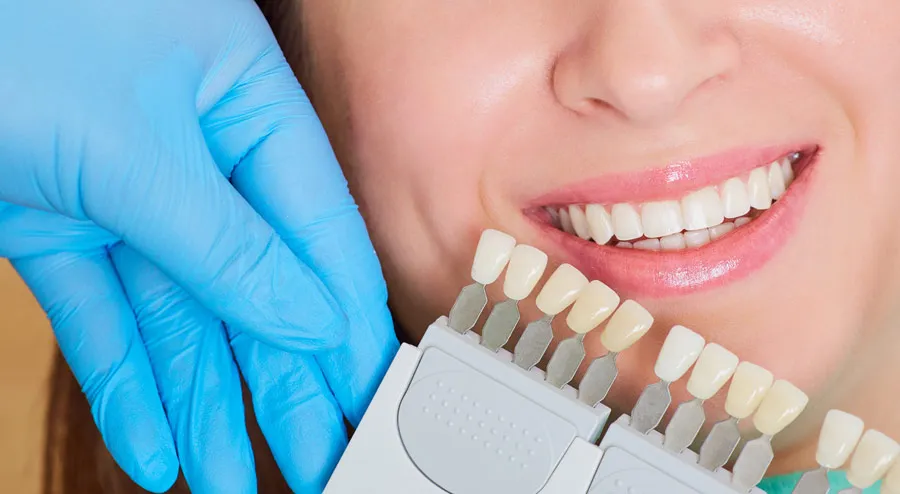
The risks of using apple cider vinegar for teeth whitening far outweigh any potential benefits. The acidity can lead to several negative outcomes that can seriously harm the teeth and overall health. These issues can lead to costly dental treatments. Being aware of the possible side effects allows you to make the right choice for the long term, not just for immediate satisfaction. A healthy smile is far more important than an aesthetic one.
Tooth Enamel Erosion
The primary risk is tooth enamel erosion. Enamel is the protective outer layer of your teeth. The acid in ACV can gradually dissolve this enamel, making your teeth more vulnerable to cavities, sensitivity, and discoloration. Once enamel is eroded, it cannot be replaced, making the damage permanent. As a result, the chances of you needing costly and painful dental procedures will increase exponentially, something to consider. Protecting your enamel should be the priority.
Increased Sensitivity
Enamel erosion can also lead to increased tooth sensitivity. As the enamel wears away, the underlying dentin, which contains tiny tubules leading to the nerves, becomes exposed. This exposure can cause your teeth to become sensitive to hot, cold, sweet, or acidic foods and drinks. This increased sensitivity can significantly impact your quality of life and make it difficult to enjoy your favorite foods. Avoiding this outcome is important, so make an informed choice. Sensitivity is a common side effect of enamel erosion.
Alternatives to Apple Cider Vinegar for Teeth Whitening
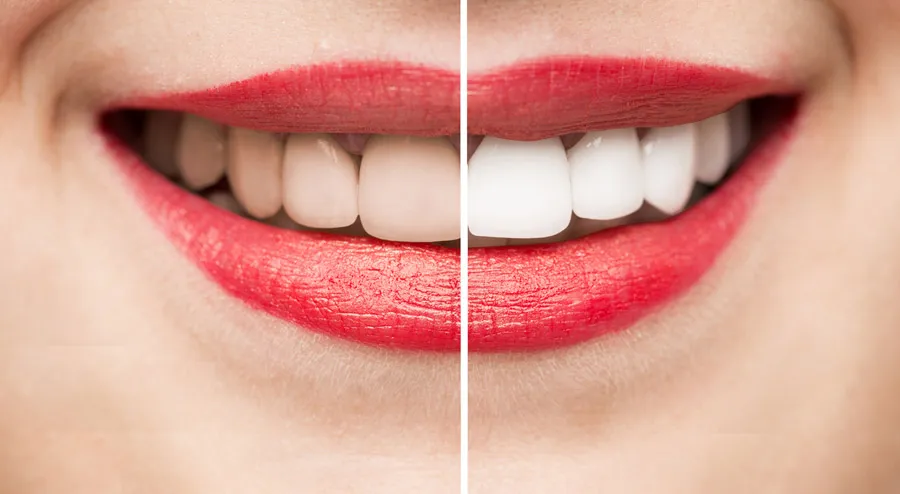
Fortunately, there are safer and more effective alternatives to apple cider vinegar for teeth whitening. These alternatives offer better results while minimizing the risk of damage to your teeth. Consider these options if you are looking to brighten your smile. These alternatives have been professionally tested and recommended by dentists. Choose wisely to ensure both the beauty and health of your teeth.
Professional Teeth Whitening
Professional teeth whitening performed by a dentist is the safest and most effective method. Dentists use high-concentration bleaching agents, which are carefully applied to the teeth to remove stains and brighten the enamel. They also take precautions to protect your gums and teeth from damage. Professional whitening offers dramatic results and is tailored to your specific needs and oral health status. This ensures a safe and effective outcome. The process is overseen by a professional, eliminating many of the dangers associated with home remedies. A dentist can also address any underlying issues before starting the treatment. The results speak for themselves.
Over-the-Counter Whitening Products
Over-the-counter whitening products, such as whitening strips, toothpastes, and gels, are generally safer than using apple cider vinegar. These products contain lower concentrations of bleaching agents, and their use is often regulated. Be sure to follow the instructions carefully, and look for products that have the American Dental Association (ADA) Seal of Acceptance. This seal indicates that the product has been tested and proven safe and effective. While these products may not provide the same dramatic results as professional whitening, they offer a convenient and generally safe option for improving the brightness of your smile. It is important to use these products as directed.
Conclusion
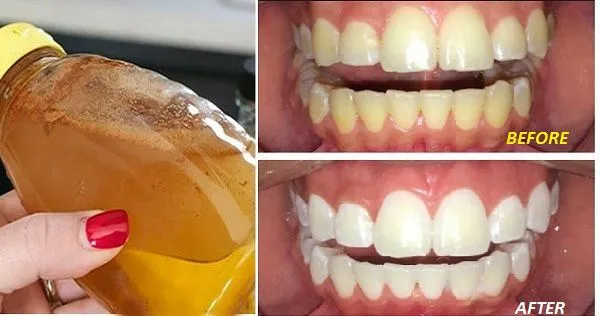
While apple cider vinegar may seem like a tempting natural remedy for teeth whitening, the risks involved significantly outweigh any potential benefits. The acidity of ACV can erode tooth enamel, leading to increased sensitivity, cavities, and permanent damage. If you’re looking to brighten your smile, consider safer and more effective alternatives, such as professional teeth whitening or over-the-counter products. Always consult with your dentist to determine the best approach for your oral health needs and to ensure a healthy, radiant smile. Protecting your teeth is paramount, and making informed decisions is key to maintaining a beautiful, healthy smile for years to come. Prioritize your health and choose wisely.
